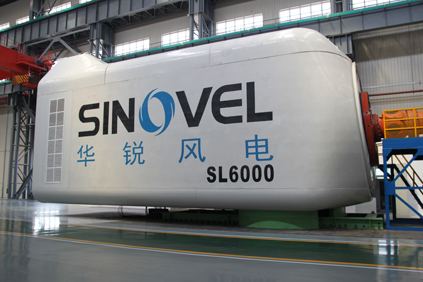Sinovel along with two of its employees and a former-employee of an AMSC subsidiary were charged with stealing trade secrets from AMSC, causing an alleged loss of more than $800 million to the company. The maximum penalty is twice that loss for each of the three counts in the indictment, giving a total of up to $4.8 billion.
The individuals named in the indictment returned by a federal grand jury in the Western District of Wisconsin yesterday are Su Liying, Sinovel's research and development department deputy director; Zhao Haichun, a technology manager for Sinovel; and Dejan Karabasevic, a former employee of AMSC's Austrian subsidiary AMSC Windtec.
Each faces one count of conspiracy to commit trade secret theft, theft of trade secrets and wire fraud.
The indictment alleges that Sinovel, through Su and Zhao, recruited Karabasevic to leave AMSC Windtec and join Sinovel, and to secretly copy intellectual property from the AMSC computer system. The four defendants are charged with stealing the source code for AMSC's PM3000 software, a part of AMSC's wind turbine electrical control system from AMSC on 7 March 2011, and transmitting it by downloading it from an AMSC computer in Wisconsin, US to a computer in Klagenfurt, Austria.
If convicted, Su, Zhao and Karabasevic each face a maximum penalty of five years in prison on the conspiracy charge, ten years in prison for theft of a trade secret and 20 years in prison for wire fraud.
Karabasevic has already been convicted by an Austrian court after admitting selling the company's technical secrets to Sinovel, a claim that Sinovel denies. Karabasevic served a 12-month jail sentence following the 2011 conviction and was released from prison in October 2012.
The charges against Karabasevic, Sinovel and its two employees were returned following an investigation by the Federal Bureau of Investigation (FBI), which found evidence that AMSC's PM3000 software code had been used in four 1.5MW Sinovel turbines that had been installed in the Massachusetts towns of Charlestown, Fairhaven, and Scituate.
"The Sinovel case is a classic example of the growing insider threat facing our nation's corporations and their intellectual property," said FBI executive assistant director Richard McFeely.
"The FBI will not stand by and watch the haemorrhage of US intellectual property to foreign countries who seek to gain an unfair advantage for their military and their industries."
AMSC is currently pursuing Sinovel through the Chinese courts for up to $1.2 billion of damages. However, AMSC president and CEO Daniel P McGahn said yesterday's charges from the US Department of Justice only underlined that his company's case was not being taken seriously in China.
"In the EU, our former employee confessed to collusion with Sinovel, was convicted and jailed for his crimes," said McGahn.
"In the US, the Department of Justice has indicted Sinovel. In China, however, the legal system has yet to take substantive action. We believe this clearly demonstrates that the rights of foreign businesses are not being protected. The inability to rely on the rule of law is creating a risk for US businesses operating in China."
Sinovel and its two indicted employees, and Karabasevic, have yet to comment on the charges issued by the Department of Justice yesterday.



.png)

HR.jpeg)
.png)








